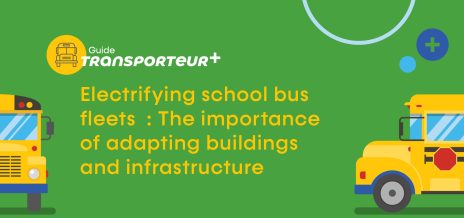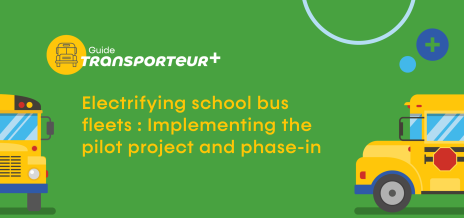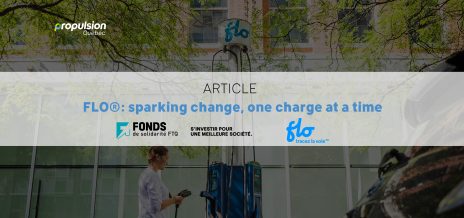Desjardins focused on net zero emissions for 2040

Desjardins Group has announced an ambitious action plan to achieve net zero emissions by 2040 in its extended operations and in its lending activities and own investments in three key carbon-intensive sectors: energy, transportation and real estate.
In response to growing expectations among members and clients for climate action, the plan builds on concrete measures in place since 2017 and reflects the organization’s willingness to speed up its climate action and adaptation initiatives and play a leadership role in this area.
“Climate change has undeniable environmental, social and economic impacts. We know that our actions will shape the future of the planet for our children and that’s why we need to step up our efforts to support a just energy transition and lead the way to a low-carbon economy,” said Guy Cormier, President and CEO of Desjardins Group.
For the first five years of its plan leading up to 2040, Desjardins has committed to:
- Focusing on and supporting large corporations in carbon-intensive sectors that:
- Demonstrate solid environmental, social and governance (ESG) performance.
- Factor in climate risk.
- Set credible targets for reducing greenhouse gas (GHG) emissions.
- Increasing its support for the renewable energy sector by:
- Boosting the share allocated to renewables in its lending to energy corporations from 24% in 2020 to 35% in 2025.
- Building a $2 billion investment portfolio in renewable energy infrastructure (an increase of 66% over 2020).
- Providing financial support for five development projects to convert organic waste (largely from agriculture) into renewable energy (biomethanization).
- Working with about 100 key suppliers to gradually reduce the carbon footprint of its supply chain. Desjardins also recently updated its procurement policy to include ESG factors.
- Training its employees on the principles of sustainable development so they can better support Desjardins’s 7.5 million members and clients. By 2023, 85% of Desjardins’s 48,000 employees will have completed this mandatory training. Employees who design or sell responsible investing products will receive specific training to help them get the word out to their clientele.
“At Desjardins, we want to help our members and clients make well-informed decisions. One of the ways we can do that is by offering products and services that improve their environmental footprint. Through our plan and the actions we’ve taken to date, we’re meeting our members’ and clients’ financial needs while addressing their concerns about the climate crisis,” added Cormier.
Desjardins Group is confident that it can achieve these ambitious goals and will track its progress using the latest science-based climate research and knowledge. The organization has joined the Partnership for Carbon Accounting Financials to accurately measure its GHG emissions (lending and investing activities) using recognized methods.
Additional information:
Continue reading on this subject

The challenges of designing a 40-tonne, 100% electric mining vehicle for open-pit mines
Partnerships and implications The partners involved in the development of a 100% electric Quebec mining vehicle were all eager to be involved with the project from the outset, for a variety of reasons. NRC’s Eddy Zuppel explained their contribution: “Before starting the project, it was important to model and simulate the vehicle’s route in order […]
Read more
Energy efficiency: Financial support to put your ideas into action
Leading a company involves balancing several priorities at the same time. Energy efficiency? It’s an important issue—one of many! What if we gave you what you need to make energy efficiency a driving force behind your company’s performance and profitability? The good news is, Hydro-Québec offers financial assistance and guidance to help you balance performance and energy efficiency.
Read more
My Consumption Profile: data that lets you strategically manage your electricity use
Companies have a critical role to play in the energy transition. Knowing that energy efficiency factors big into profitability, your organization will benefit from strategically managing its electricity use. The key? Your data!
Read more
Electrifying school bus fleets : Grants available to support your project
In this series of articles, we demystify the key steps of converting your school bus fleet to electric power thanks to the Transporteur+ guide. This guide aims to provide easy and direct access to resources to clarify the steps, issues, conditions and facilitating measures for a successful transition to electrification.
Read more
Electrifying school bus fleets | Key step : Comissioning
In this series of articles, we demystify the key steps of converting your school bus fleet to electric power thanks to the Transporteur+ guide. This guide aims to provide easy and direct access to resources to clarify the steps, issues, conditions and facilitating measures for a successful transition to electrification.
Read more
FINANCING | $50 million from Finalta Capital in non-dilutive financing dedicated to the Electric and Smart Transportation sector
Fast growing, innovative companies from the electric and smart transportation (EST) sector in Québec take advantage of the $50 million in funding dedicated to the EST ecosystem by Finalta Capital, one of Canada’s largest funds specialized in non-dilutive tax credit and government grant financing, announced in March 2023 as part of the Impulsion conference, the International EST Summit organized by Propulsion Québec.
Read more
Demand response: Save money by using hydro at the right times
If you could lower your company's hydro bill while contributing to the collective effort to support Quebec’s energy transition, would you? Yes, most likely! How? By curbing power demand for buildings and equipment during peak demand events.
Read more
Electrifying school bus fleets : The importance of adapting buildings and infrastructure
In this series of articles, we demystify the key steps of converting your school bus fleet to electric power thanks to the Transporteur+ guide. This guide aims to provide easy and direct access to resources to clarify the steps, issues, conditions and facilitating measures for a successful transition to electrification.
Read more
Electrifying school bus fleets : Implementing the pilot project and phase-in
In this series of articles, we demystify the key steps of converting your school bus fleet to electric power thanks to the Transporteur+ guide. This guide aims to provide easy and direct access to resources to clarify the steps, issues, conditions and facilitating measures for a successful transition to electrification
Read more
Electrifying school bus fleets: The importance of choosing your suppliers
In this series of articles, we demystify the key steps of converting your school bus fleet to electric power thanks to the Transporteur+ guide. This guide aims to provide easy and direct access to resources to clarify the steps, issues, conditions and facilitating measures for a successful transition to electrification.
Read more
The key to a successful school bus fleet electrification project
In this series of articles, we demystify the key steps of converting your school bus fleet to electric power thanks to the Transporteur+ guide. This guide aims to provide easy and direct access to resources to clarify the steps, issues, conditions and facilitating measures for a successful transition to electrification.
Read more
FLO®: sparking change, one charge at a time
FLO became a leader in electric vehicle (EV) charging in North America by integrating the process from start to finish: manufacturing charging stations, developing software and managing its network. To stay ahead of the curve in a fast-moving, innovation-driven market, the company turned to the Fonds de solidarité FTQ to support its growth.
Read more




